NATIONAL STATE OF DISASTER
Extreme rainfall wreaks havoc in Kruger National Park, Limpopo and Eastern Cape
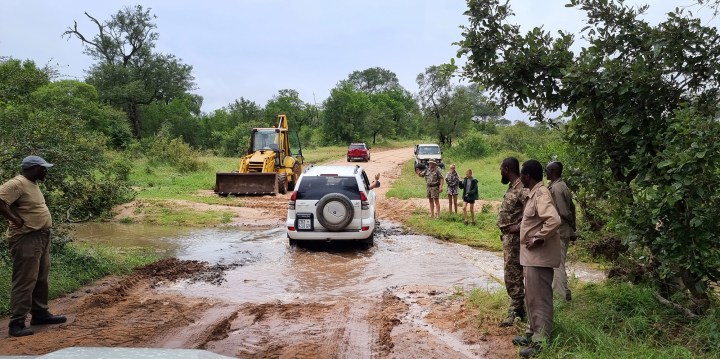
Flooding in the eastern and northeastern provinces has resulted in death, damage and destruction.
Kruger National Park
The South African Weather Service reported that during the latter half of last week and continuing through the past weekend, a slow-moving upper-air cut-off low pressure system lingered over the interior, causing widespread and often heavy rain over the eastern and northeastern provinces.
“This extreme rainfall resulted in widespread flooding, with major rivers (especially those transiting the Kruger National Park and lowveld) now being in full flood since the beginning of the weekend,” the South African Weather Service said at the start of this week.
Fern van de Pol was on a birding trip in the south of Kruger National Park when the rain hit last week.
“[Biyamiti Bushveld Camp] is on a river, which never flows. I’ve been there I don’t know how many times and have never seen the river flowing,” Van de Pol told DM168. “It’s normally a puddle or two.”
And then, on Tuesday, 7 February, in the middle of the night, “the heavens just opened”.
“When we woke up on Wednesday morning, the river was just wall to wall – I mean, banks right across were flooded.”
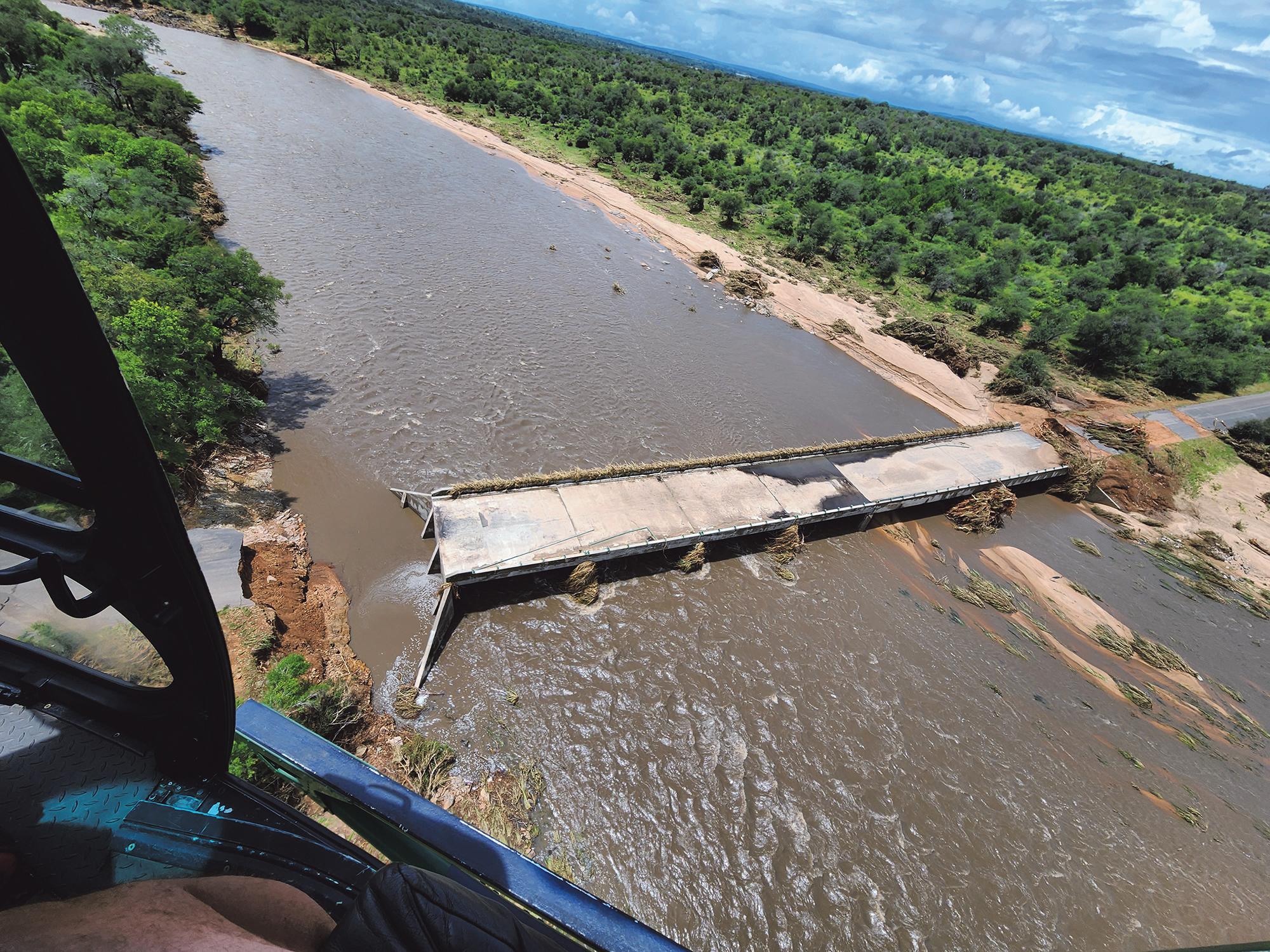
A view from a helicopter of the Nwatimhiri Bridge on the H4-1 main tar road between Skukuza and Lower Sabie Rest Camps on 10 February. (Photo: Hein Grobler/SANParks)
That morning a ranger tried to leave the camp to go back to his post, and “as he approached [a] drift, the water just pushed his game ranger vehicle more or less up a tree!” said Van de Pol.
From Wednesday to Friday, like many guests in the park, Van de Pol was in lockdown, unable to leave, as the roads were blocked and bridges were not safe to cross.
Stuck at the camp, Van de Pol said she got the chance to learn a lot about birding, but they were running out of supplies, as they hadn’t planned to stay there for that long.
On 10 February, a hospitality manager from Kruger organised emergency supplies and a helicopter to drop off food supplies.
On 11 February, as part of SANParks’ evacuation operation to assist guests who were staying at Lower Sabie, Talamati, Crocodile Bridge and Biyamiti, Van de Pol left camp.
“I think 40km took us seven hours because there were logs across the road, there were blockages – it was hectic,” said Van de Pol.
“And the rangers were absolutely fantastic. They went ahead with chainsaws; a couple of times we had to wait for the backup to come and clear the river a bit.”
As a precautionary measure, SANParks teams closed gravel roads in the south of the Kruger National Park as well as certain camps after heavy rains started on 8 February.
Mark Fox, a field ranger and guide who runs Foxy Crocodile Bush Retreat on the Crocodile River overlooking Kruger, told DM168 that on the morning of 9 February, they went to Crocodile Bridge at 4.30am only to find that the water had risen and covered the bridge, and they couldn’t cross over to get into the Kruger National Park.
“We stood there and watched the water rise,” said Fox. “It must have gone up 2 metres in the time that we [were] there. We couldn’t get into the Kruger for a couple of days.”
On 16 February, Crocodile Bridge was still closed, and Fox said they were driving an extra 30km every day to go in at Malelane Gate with their guests.
Reflecting on how privileged she was to be in the care of experts helping them evacuate, Van de Pol said: “As we drove home, we saw the devastation wrought on communities along the Elands River whose homes and crops were severely damaged. They have no access to resources.” – Julia Evans
Visit Daily Maverick’s home page for more news, analysis and investigations
Komani
Nontombi Bhadi (69) and her sister Nokwayintombi Bhadi (65) say the floods that hit Komani reminded them of the floods during Noah’s time in the Bible.
“That Tuesday night is one of the days that I will never forget in my life. We were sleeping in this one-room shack when we were woken by people knocking at the door shouting that we must get out of the house immediately,” said Nontombi.
She said she quickly took what was close to her, while her sister took the bag with documents that was hanging over the bed.
“When we got down from the bed, that is when I noticed that the water was already above my knees and the people were shouting that we must get out of the house quickly, as more water was coming,” said Nontombi.
She said when they opened the door, more water came inside and the young man who went from shack to shack waking people grabbed them and took them to a place of safety.
“As we moved up to the place, the water was pulling us towards the river. I could hear the blanket pulling me behind and my shoes getting out of my feet … The men grabbed us and lifted us, as we were too slow and the water was quickly rising,” added Nontombi.
According to her sister, Nokwayintombi, it was when they were lifted by the men that she had given up and believed that she would not survive the floods.
“We saw people on top of the shacks, animals being swept away by the floods and the water quickly rising up … If those people hadn’t woken us, we would have died in those floods,” she said.
Nokwayintombi said they waited from 11.45pm on Tuesday until 4am on Wednesday, when they finally got help.
“There was no car that could come and rescue us, as the water closed all roads and this happened at night.
“I still remember everything that happened that day. It will always be in my mind,” said Nokwayintombi. – Tembile Sgqolana
Limpopo
Foreman Malatji carries a heavy burden of grief as he recounts the loss of his beloved nieces aged three and seven, who drowned in the floods that struck parts of the country this week.
The pair, Tsheamo Malatji and Tharollo Pilusa, drowned while playing at home near a newly dug pit toilet, which was waterlogged, in Maseke village, Phalaborwa.
The recent heavy downpours in various parts of SA have caused significant damage and disruption to many communities.
In particular, Limpopo’s Mopani, Vhembe and Waterberg districts have been hit hard by flooding, resulting in the loss of at least six lives.
The severity of the flooding has led to the province being among those placed under a National State of Disaster owing to floods.
According to the provincial report on flooded infrastructure, at least 306 houses, six schools and two health facilities in Polokwane and Mapayeni were flooded. The heavy rains also damaged roads, bridges and other public infrastructure.
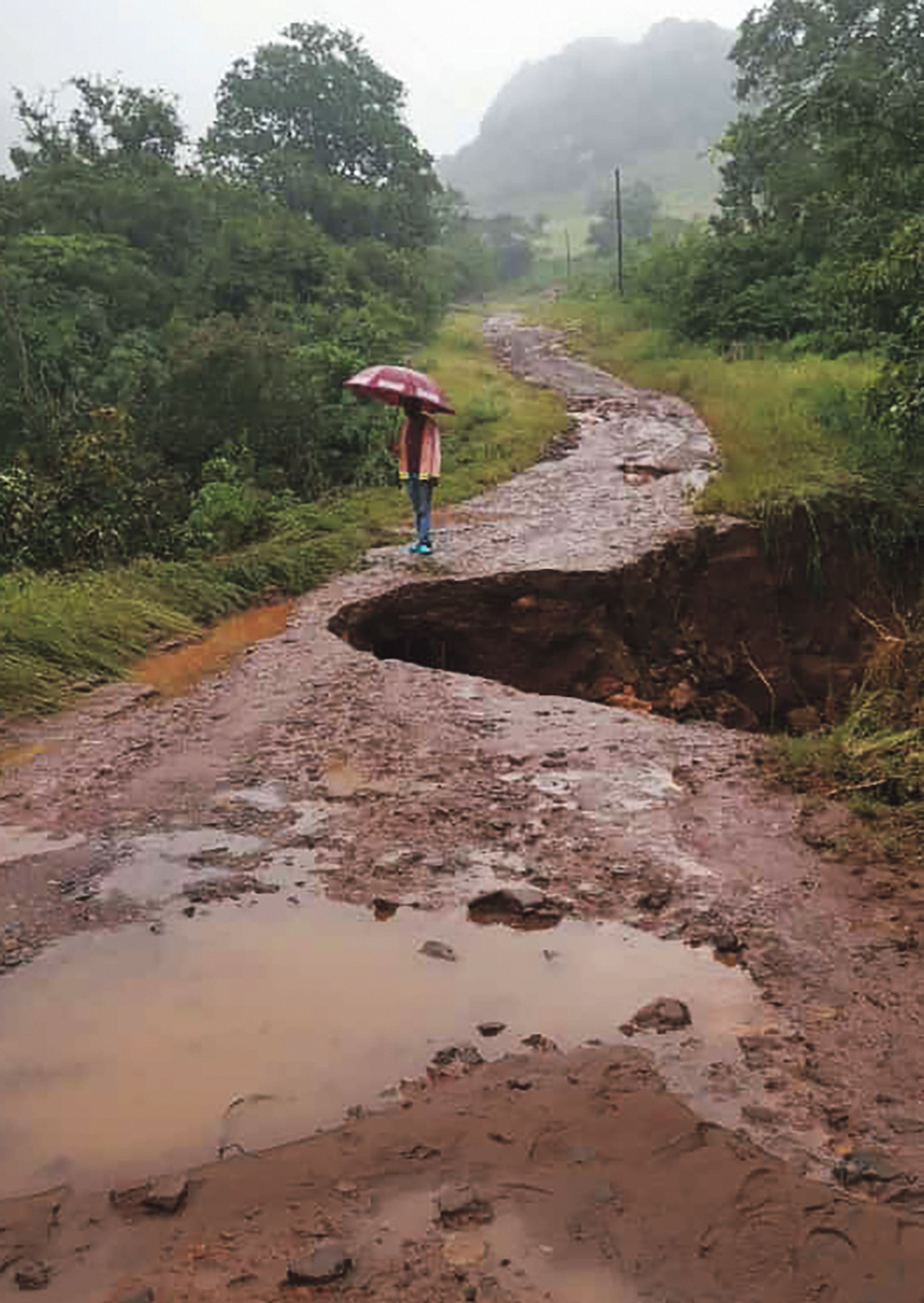
Roads in Makumbani village outside of Thohoyandou in Limpopo were damaged. (Photo: Rudzani Tshivhase)
“This incident has highly disrupted our lives as a family. We find it hard to accept this news and have no idea how we are going to come out of this tragic double loss, especially as it happened here in the yard,” Malatji said.
Meanwhile, in the Greater Tzaneen Municipality, nine-year-old Mapheto Wilson Mabunda also drowned when he accidentally fell into a pit in Xihoko village.
Family spokesperson Kingsley Mabunda said that Mapheto would be buried on 18 February at Nyavana Headkraal cemetery.
“We are going through difficult times and we are appealing to those who lost their loved ones through drowning to put their faith in God. We are appealing to the community at large to look after their children and warn them against swimming in the rivers and dams,” Mabunda said.
Other drowning-related incidents in the province include that of a Grade 11 learner who drowned while swimming in the Mmaba River at Mamokgadi village within the Greater Letaba Municipality on 12 February.
ER24 advanced life support paramedic Estiaan Cronjé formed part of the rescue operations of two men who were airlifted to safety after they were stranded on a small island on the Letaba River for several days.
Cronjé was also at the scene of the accident that occurred between a tour bus and a cash-in-transit van on the N1 near Makhado that claimed 22 lives. It is reported that the two vehicles were involved in a head-on collision and the bus then rolled from the freeway bridge into the river below, landing on its left side. The area had been experiencing heavy rain for a number of days.
“Those are difficult calls. When you have so many people deceased … when you have cellphones ringing, with the patient’s belongings, and there is nothing you can do about it. You can’t answer, you can’t speak to them because it is not your place,” said Cronjé.
He has urged motorists to respect the rain when travelling by taking precautions such as driving at a slower speed, putting headlights on and adding time to their travel because of the rainy weather.
MEC for Cooperative Governance, Human Settlements and Traditional Affairs Basikopo Makamu said the South African National Defence Force, South African Police Service and all other rescue support units will remain on standby in case their intervention is required.
Mopani District Municipality’s executive mayor, councillor Pule Shayi, sent condolences to the bereaved families.
“And we again appeal to all our people to remain vigilant, especially those living in low-lying areas, because most of our dams are now overflowing and that means that the waters are rising rapidly in the streams and rivers,” he said. – Mokgadi Mogy Mashako
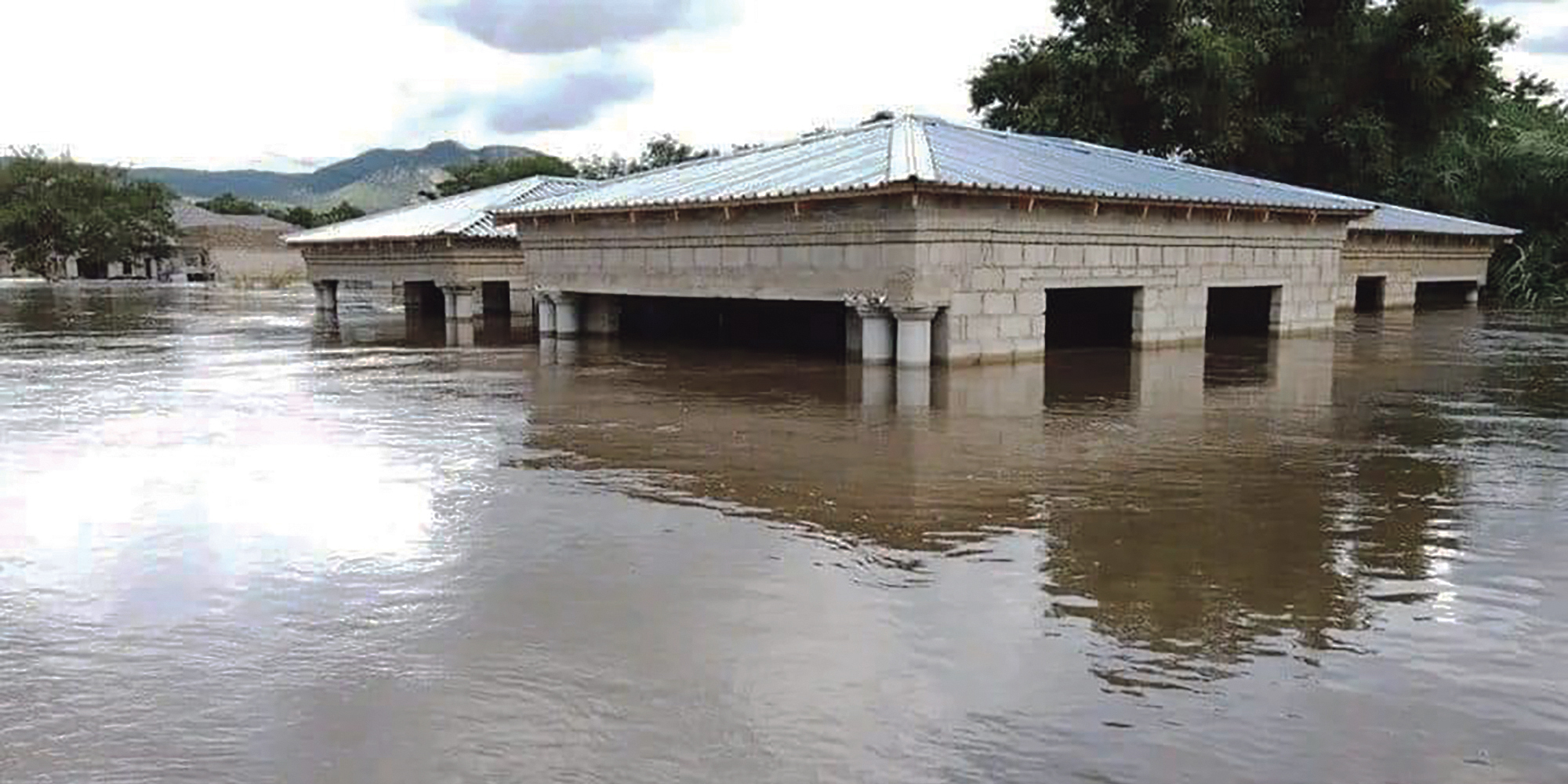
The roads in Mukumbani village were inaccessible as a result of the continuous rainfall on 14 February. (Photo: Rudzani Tshivhase)
Why is it raining?
The heavy rainfall and flooding that parts of the country have experienced over the past few weeks are naturally occurring events. And it’s very likely that this weather would be happening even if climate change didn’t exist.
But what’s important to understand is that scientists globally have proven that anthropogenic climate change (caused by humans) is causing extreme weather events like heatwaves, heavy rainfall and droughts to become more frequent and severe.
“The warmer we make the atmosphere, the more water vapour it can hold,” Francois Engelbrecht, professor of climatology and director of the Global Change Institute at the University of the Witwatersrand, told DM168. “And therefore there’s more water available for storm systems to eventually cause precipitation. So, the more water vapour in the atmosphere, the greater the potential for intense precipitation events. This is a direct consequence of a warmer world, the fact that we are seeing more intense precipitation events.” – DM168
This story first appeared in our weekly Daily Maverick 168 newspaper, which is available countrywide for R25.


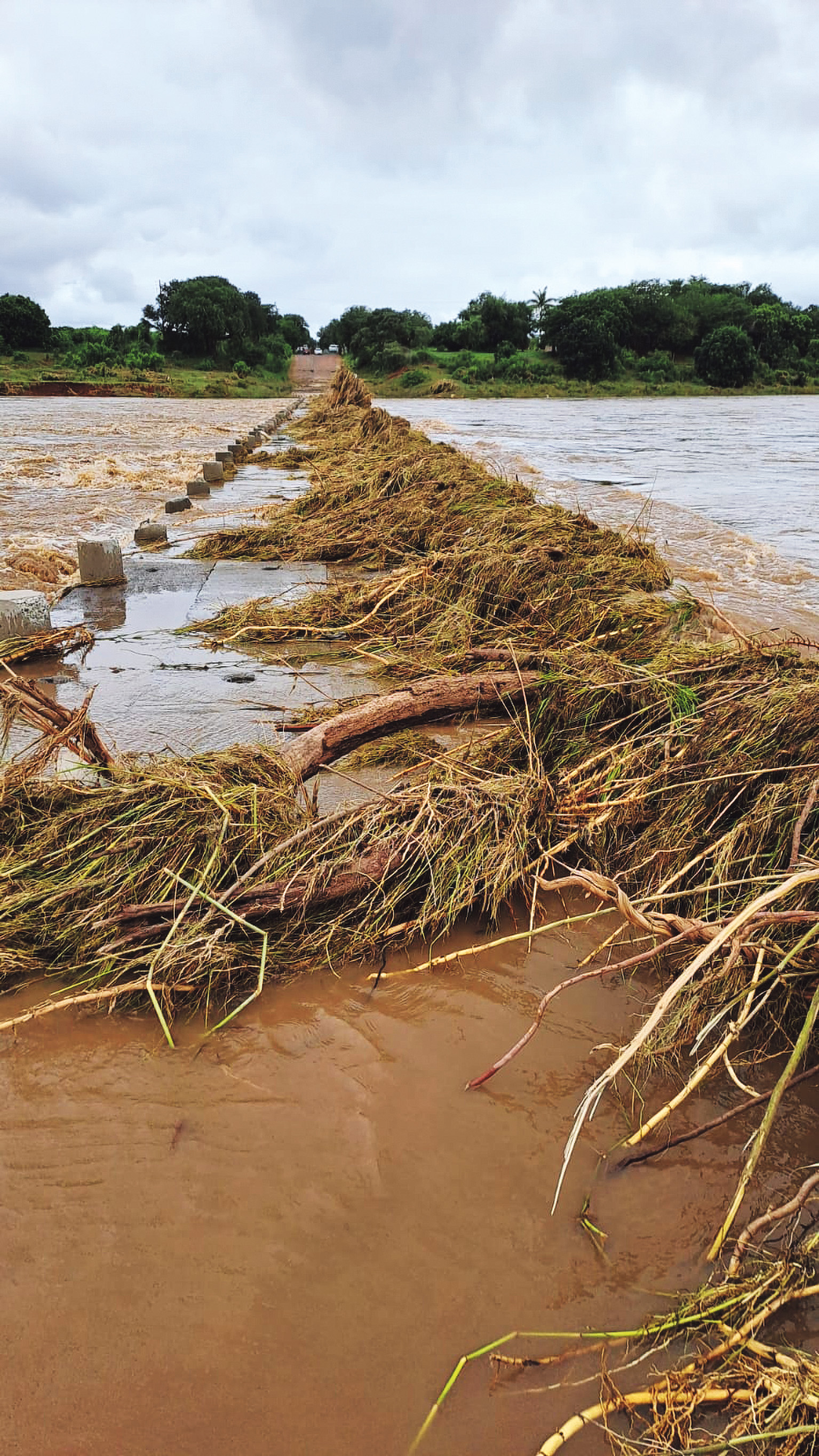
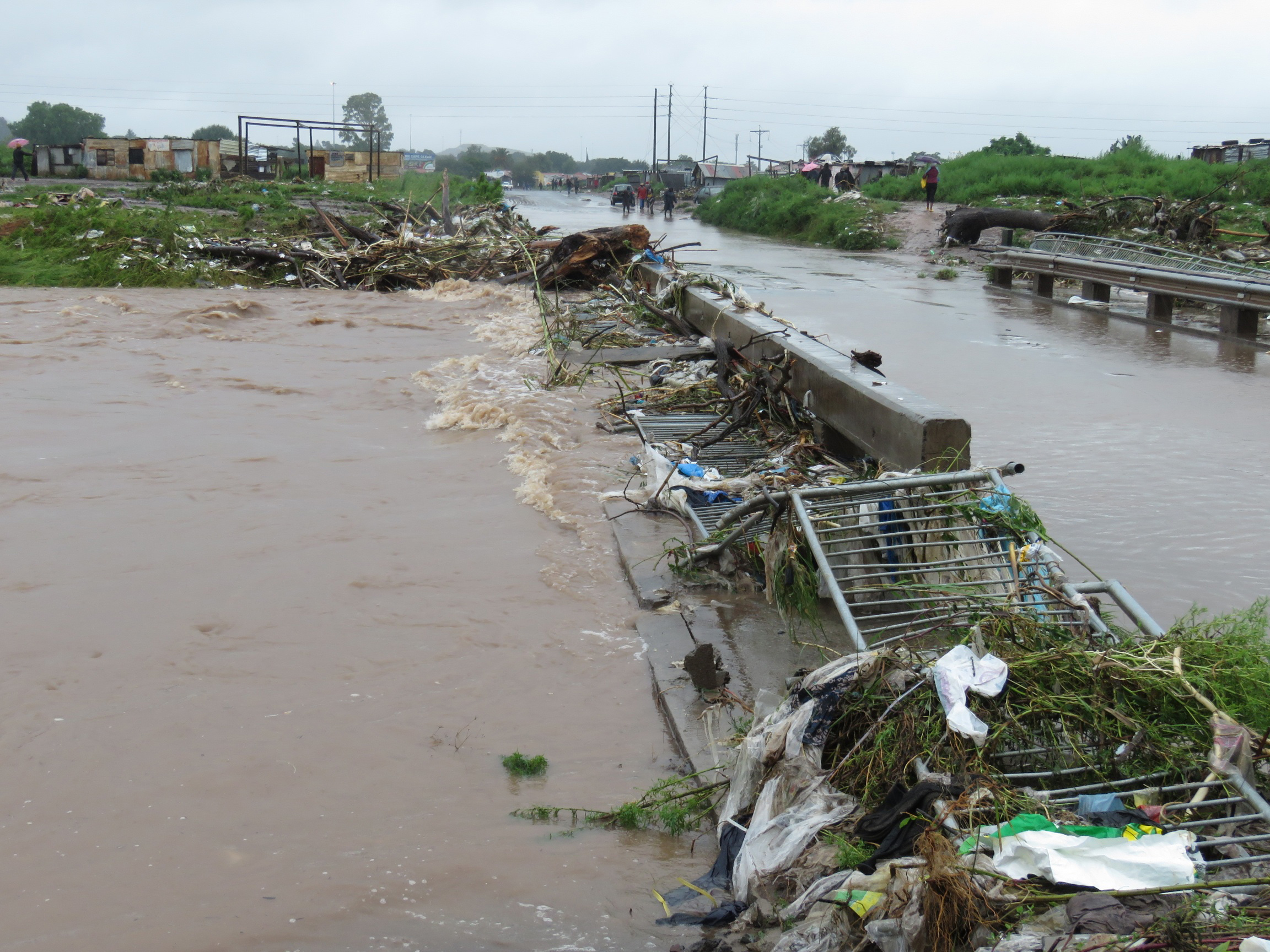


















 Become an Insider
Become an Insider
Comments - Please login in order to comment.